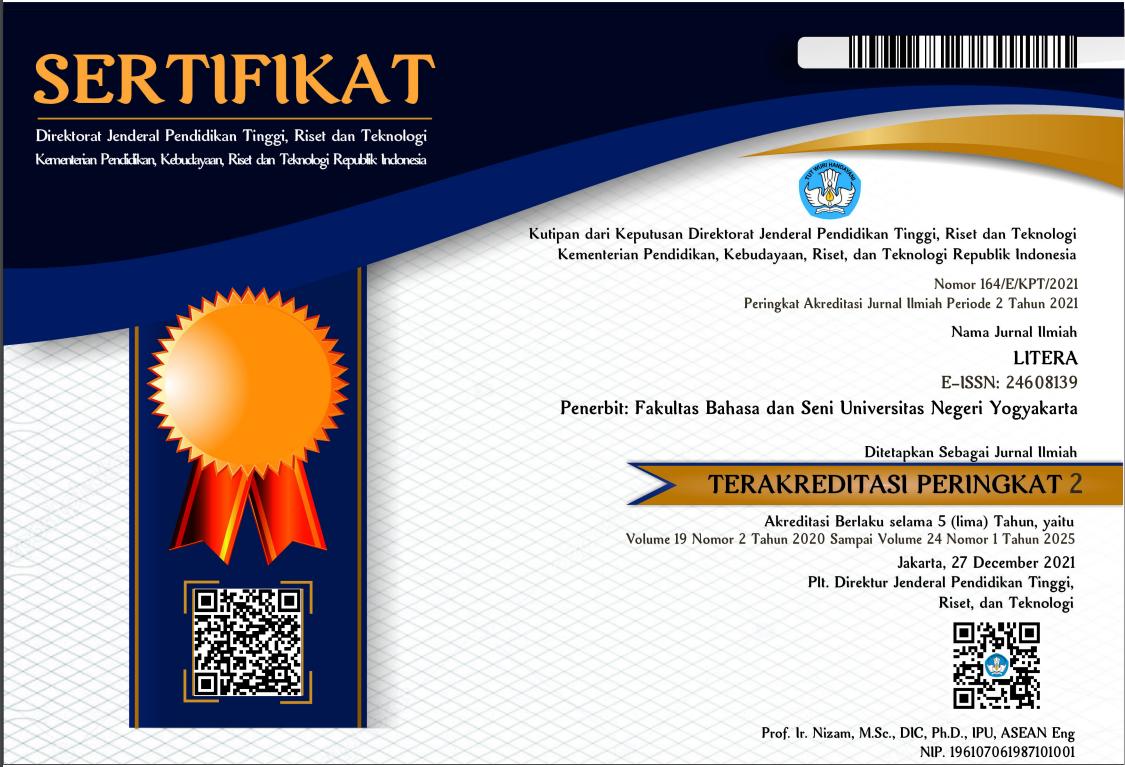Discrepancies between students' and teachers' expectations of purposeful foreign language learning
Downloads
Motivation has been found to play a pivotal role for the success of foreign language learning. Students generally stay motivated if they appreciate the purposefulness of their learning process, so if they did not share the same expectations with their teachers of the process, these discrepancies might affect their motivation and disrupt their learning. This mixed-method research uses online questionnaires to examine four major topics, namely program, curriculum, teachers, and students, and employs comparative analysis to the views of the two respondent groups to investigate such discrepancies. The results show discrepancies exist among the respondents, especially in what the students expect to learn, the line of work that they desire to take, and the different factors that affect their motivation. These results signify the need to better align the students' and the teachers' expectations of foreign language learning in order to maintain the students' motivation and to improve the effectiveness of the learning process.
Downloads
Alison, J. (1993). Not bothered? Motivating reluctant language learners in key stage 4. CILT Publications.
Brecht, R. D. (1991). Less commonly taught and commonly taught languages: Commonalities and differences. Foreign Language Annals, 24(2), 151-153. https://doi.org/10.1111/j.1944-9720.1991.tb00457.x
Cheng, H.-F., & Dí¶rnyei, Z. (2007). The use of motivational strategies in language instruction: The case of EFL teaching in Taiwan. Innovation in Language Learning and Teaching, 1(1), 153-174. https://doi.org/10.2167/illt048.0
Crookes, G., & Schmidt, R. W. (1991). Motivation: Reopening the research agenda. Language Learning, 41(4), 469-512. https://doi.org/10.1111/j.1467-1770.1991.tb00690.x
Csizér, K., & Dí¶rnyei, Z. (2005). The internal structure of language learning motivation and its relationship with language choice and learning effort. The Modern Language Journal, 89(1), 19–36. https://www.jstor.org/stable/3588549
Dí¶rnyei, Z. (1994a). Motivation and motivating in the foreign language classroom. The Modern Language Journal, 78(3), 273–284. https://www.jstor.org/stable/330107
Dí¶rnyei, Z. (1994b). Understanding L2 motivation: On with the challenge! The Modern Language Journal, 78(4), 515–523. https://www.jstor.org/stable/328590
Dí¶rnyei, Z. (1997). Motivational factors in second language attainment: A review of research in Hungary. Acta Linguista Hungarica, 44(1/2), 261–275. https://www.jstor.org/stable/44306790
Dí¶rnyei, Z. (2001). Motivational strategies in the language classroom. Cambridge University Press.
Dí¶rnyei, Z. (2005). The psychology of the language learner: Individual differences in second language acquisition. Lawrence Erlbaum.
GDUFS. (2022). Guangdong University of Foreign Studies. GDUFS.
Guilloteaux, M. J., & Dí¶rnyei, Z. (2008). Motivating language learners: A classroom-oriented investigation of the effects of motivational strategies on student motivation. TESOL Quarterly, 42(1), 55–77. https://www.jstor.org/stable/40264425
Kuntz, P. (1996). Students of Arabic: Beliefs about foreign language learning. Al-"˜Arabiyya, 29(153–176). https://www.jstor.org/stable/43194135
Lutz, R. (1990). Classroom shock: The role of expectation in an instructional setting. In J. E. Alatis (Ed.), GURT 1990: Linguistics, language teaching and language acquisition: The interdependence of theory, practice, and research. Georgetown University Press.
Masgoret, A.-M., & Gardner, R. C. (2003). Attitudes, motivation, and second language learning: A meta-analysis of studies conducted by Gardner and Associates. Language Learning, 53(1), 123–163. https://doi.org/10.1111/1467-9922.00212
Milano, S. (2022, March 25). Social factors affecting employment. Chron. https://work.chron.com/social-factors-affecting-employment-19867.html
Mitchell, J. W. (2023, September 6). The future of job security is flexibility. Forbes. https://www.forbes.com/sites/forbesbooksauthors/2023/09/06/the-future-of-job-security-is-flexibility/?sh=7536bcf27a5f
Oxford, R., & Shearin, J. (1994). Language learning motivation: Expanding the theoretical framework. The Modern Language Journal, 78(1), 12–28. https://www.jstor.org/stable/329249
Paradis, M. (2009). Declarative and procedural determinants of second languages. John Benjamins Publishing Company.
Shrum, J. L., & Glisan, E. W. (2016). Teacher's handbook: Contextualized language instruction (5th ed.). Cengage Learning.
Standley, E. (2023, September 9). #The impact of technology advancements on job security in the tech industry. LinkedIn. https://www.linkedin.com/pulse/impact-technology-advancements-job-security-tech-edward-standley
Tremblay, P. F., & Gardner, R. C. (1995). Expanding the motivation construct in language learning. The Modern Language Journal, 79(4), 505–518. https://www.jstor.org/stable/330002
Williams, M., & Burden, R. L. (1997). Psychology for language teachers: A social constructivist approach. Cambridge University Press.
Yorio, C. A. (1986). Consumerism in second languge learning and teaching. The Canadian Modern Language Review, 42(3), 668-687. https://doi.org/10.3138/cmlr.42.3.668
























